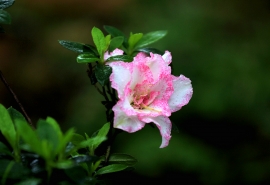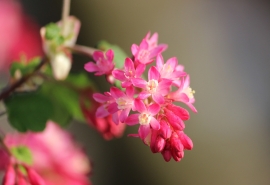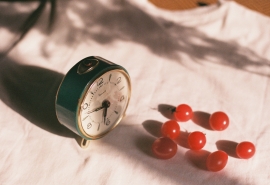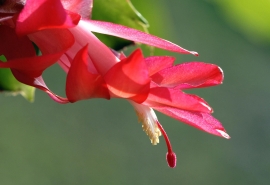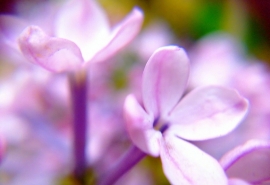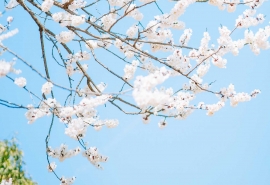
泗组词造句
泗【拼音:sì】:
1、释义:
(1)〔~河〕水名,在中国山东省。
(2)鼻涕:涕~(眼泪和鼻涕)。
2、组词:
涕泗滂沱【tì sì pāng tuó]】:出自《国风陈风泽陂》,作者:佚名,原著:“彼泽之陂,有蒲与荷。有美一人,伤如之何?寤寐无为,涕泗滂沱”。
悲泗淋漓【悲泗淋漓】:出自《柳毅传》,作者唐代李朝威,原著:“悲泗淋漓,诚怛(da二声)人心。”悲伤的泪水喷薄而出,流个不停,确实是使人心伤啊!
3、其他两字词语有如下:
泗涕、泗洟、泗沂、陨泗、鲠泗、洙泗、泗滨、挥泗、雨泗等。
用英文描述的英文原著
急需...Great Expectations
Dickens considered Great Expectations one of his "little pieces," and indeed, it is slim compared to such weighty novels as David Copperfield or Nicholas Nickleby. But what this cautionary tale of a young man raised high above his station by a mysterious benefactor lacks in length, it more than makes up for in its remarkable characters and compelling story. The novel begins witODgsSXhUh young orphaned Philip Pirrip--Pip--running afoul of an escaped convict in a cemetery. This terrifying personage bullies Pip into stealing food and a file for him, threatening that if he tells a soul "your heart and your liver shall be tore out, roasted and ate." The boy does as he's asked, but the convict is captured anyway, and transported to the penal colonies in Australia. Having started his novel in a cemetery, Dickens then ups the stakes and introduces his hero into the decaying household of Miss Havisham, a wealthy, half-mad woman who was jilted on her wedding day many years before and has never recovered. Pip is brought there to play with Miss Havisham's ward, Estella, a little girl who delights in tormenting Pip about his rough hands and future as a blacksmith's apprentice.
I had never thought of being ashamed of my hands before; but I began to consider them a very indifferent pair. Her contempt for me was so strong, that it became infectious, and I caught it.
It is an infection that Pip never quite recovers from; as he spends more time with Miss Havisham and the tantalizing Estella, he becomes more and more discontented with his guardian, the kindhearted blacksmith, Joe, and his childhood friend Biddy. When, after several years, Pip becomes the hei//www.souquanme.comr of an unknown benefactor, he leaps at the chance to leave his home and friends behind to go to London and become a gentleman. But having expectations, as Pip soon learns, is a two-edged sword, and nothing is as he thought it would be. Like that other "little piece," A Tale of Two Cities, Great Expectations is different from the usual Dickensian fare: the story is dark, almost surreal at times, and you'll find few of the author's patented comic characters and no comic set pieces. And yet this is arguably the most compelling of Dickens's novels for, unlike David Copperfield or Martin Chuzzlewit, the reader can never be sure that things will work out for Pip. Even Dickens apparently had his doubts--he wrote two endings for this novwww.souquanme.comel. --Alix Wilber
Dickens considered Great Expectations one of his "little pieces," and indeed, it is slim compared to such weighty novels as David Copperfield or Nicholas Nickleby. But what this cautionary tale of a young man raised high above his station by a mysterious benefactor lacks in length, it more than makes up for in its remarkable characters and compelling story. The novel begins witODgsSXhUh young orphaned Philip Pirrip--Pip--running afoul of an escaped convict in a cemetery. This terrifying personage bullies Pip into stealing food and a file for him, threatening that if he tells a soul "your heart and your liver shall be tore out, roasted and ate." The boy does as he's asked, but the convict is captured anyway, and transported to the penal colonies in Australia. Having started his novel in a cemetery, Dickens then ups the stakes and introduces his hero into the decaying household of Miss Havisham, a wealthy, half-mad woman who was jilted on her wedding day many years before and has never recovered. Pip is brought there to play with Miss Havisham's ward, Estella, a little girl who delights in tormenting Pip about his rough hands and future as a blacksmith's apprentice.
I had never thought of being ashamed of my hands before; but I began to consider them a very indifferent pair. Her contempt for me was so strong, that it became infectious, and I caught it.
It is an infection that Pip never quite recovers from; as he spends more time with Miss Havisham and the tantalizing Estella, he becomes more and more discontented with his guardian, the kindhearted blacksmith, Joe, and his childhood friend Biddy. When, after several years, Pip becomes the hei//www.souquanme.comr of an unknown benefactor, he leaps at the chance to leave his home and friends behind to go to London and become a gentleman. But having expectations, as Pip soon learns, is a two-edged sword, and nothing is as he thought it would be. Like that other "little piece," A Tale of Two Cities, Great Expectations is different from the usual Dickensian fare: the story is dark, almost surreal at times, and you'll find few of the author's patented comic characters and no comic set pieces. And yet this is arguably the most compelling of Dickens's novels for, unlike David Copperfield or Martin Chuzzlewit, the reader can never be sure that things will work out for Pip. Even Dickens apparently had his doubts--he wrote two endings for this novwww.souquanme.comel. --Alix Wilber
水浒传原著的古文翻译
绛帻鸡人报晓筹, 尚衣方进翠云裘。九天阊阖开宫殿,万国衣冠拜冕旒。日色才临仙掌动,香烟欲傍衮龙浮。朝罢须裁五色诏,佩声归到凤池头。水浒传中开篇时的第一首诗,谢谢大家帮忙翻译一下!《和贾至舍人早朝大明宫之作》
作者:王维
绛帻鸡人报晓筹,尚衣方进翠云裘。
九天阊阖开宫殿,万国衣冠拜冕旒。
日色才临仙掌动,香烟欲傍衮龙浮。
朝罢须裁五色诏,佩声归到凤池头。
【注解】:
1、绛帻:用红布包头似鸡冠状。
2、鸡人:古代宫中,于天将亮时,有头戴红巾的卫士,于朱雀门外高声喊叫,好像
��鸡鸣,以警百官,故名鸡人。
3、晓筹:即更筹,夜间计时的竹签。
4、尚衣:官名。隋唐有尚衣局,掌管皇帝的衣服。
5、翠云裘:饰有绿色云纹的皮衣。
6、衣冠:指文武百官。
7、冕旒:古代帝王、诸侯及卿大夫的礼冠。旒:冠前后悬垂的玉串,天子之冕十二
��旒。这里指皇帝。
8、仙掌:掌为掌扇之掌,也即障扇,宫中的一种仪仗,用以蔽日障风。
9、香烟:这里是和贾至原诗“衣冠身惹御炉香”意。
10、衮龙:犹卷龙,指皇帝的龙袍。
11、浮:指袍上锦绣光泽的闪动。
12、五色诏:用五色纸所写的诏书。
【韵译】:
卫士头戴红巾象雄鸡高唱报告天明,
管御服的官员刚把翠云裘捧进宫廷。
重重深宫禁苑一殿殿都已敞开大门;
文武百官和客臣拜谒皇帝听候旨令。
蔽日的障扇被晨曦照临着向前移动;
香炉的轻烟依傍着皇上的龙袍升腾。
朝拜后贾舍人就用五色纸起草诏书;
可听到服饰铿锵声他已回到中书省ODgsSXhU。
【评析】:
��这首诗与岑参所写同题,全是描写朝拜庄严华贵的唱和诗。内容也无甚足取。但
全诗写了早朝前,早朝中,早朝后三个层次,描绘了大明宫早朝的氛围与皇帝的威
仪。这首和诗不和韵,只和其意。用语堂皇,造句伟丽,格调和谐。
��附:贾至的《早朝大明宫》原诗:“银烛朝天紫陌长,禁城春色晓苍苍。千条弱
柳垂青琐,百啭流莺满建章。剑www.souquanme.com佩声随玉墀步,衣冠身惹御炉香。共沐恩波凤池里,
朝朝染翰侍君王。”
http://www.qingshi.net/news_view.asp?newsid=2505
http://www.goldnets.com/gd/poems/tang/300/006.htm
作者:王维
绛帻鸡人报晓筹,尚衣方进翠云裘。
九天阊阖开宫殿,万国衣冠拜冕旒。
日色才临仙掌动,香烟欲傍衮龙浮。
朝罢须裁五色诏,佩声归到凤池头。
【注解】:
1、绛帻:用红布包头似鸡冠状。
2、鸡人:古代宫中,于天将亮时,有头戴红巾的卫士,于朱雀门外高声喊叫,好像
��鸡鸣,以警百官,故名鸡人。
3、晓筹:即更筹,夜间计时的竹签。
4、尚衣:官名。隋唐有尚衣局,掌管皇帝的衣服。
5、翠云裘:饰有绿色云纹的皮衣。
6、衣冠:指文武百官。
7、冕旒:古代帝王、诸侯及卿大夫的礼冠。旒:冠前后悬垂的玉串,天子之冕十二
��旒。这里指皇帝。
8、仙掌:掌为掌扇之掌,也即障扇,宫中的一种仪仗,用以蔽日障风。
9、香烟:这里是和贾至原诗“衣冠身惹御炉香”意。
10、衮龙:犹卷龙,指皇帝的龙袍。
11、浮:指袍上锦绣光泽的闪动。
12、五色诏:用五色纸所写的诏书。
【韵译】:
卫士头戴红巾象雄鸡高唱报告天明,
管御服的官员刚把翠云裘捧进宫廷。
重重深宫禁苑一殿殿都已敞开大门;
文武百官和客臣拜谒皇帝听候旨令。
蔽日的障扇被晨曦照临着向前移动;
香炉的轻烟依傍着皇上的龙袍升腾。
朝拜后贾舍人就用五色纸起草诏书;
可听到服饰铿锵声他已回到中书省ODgsSXhU。
【评析】:
��这首诗与岑参所写同题,全是描写朝拜庄严华贵的唱和诗。内容也无甚足取。但
全诗写了早朝前,早朝中,早朝后三个层次,描绘了大明宫早朝的氛围与皇帝的威
仪。这首和诗不和韵,只和其意。用语堂皇,造句伟丽,格调和谐。
��附:贾至的《早朝大明宫》原诗:“银烛朝天紫陌长,禁城春色晓苍苍。千条弱
柳垂青琐,百啭流莺满建章。剑www.souquanme.com佩声随玉墀步,衣冠身惹御炉香。共沐恩波凤池里,
朝朝染翰侍君王。”
http://www.qingshi.net/news_view.asp?newsid=2505
http://www.goldnets.com/gd/poems/tang/300/006.htm
红楼梦原著片段及简易解析
黛玉最怜惜花,觉得花落以后埋在土里最干净,说明她对美有独特的见解。她写了葬花词,以花比喻自己,在红楼梦中是最美丽的诗歌之一。宝玉和黛玉在葬花的时候有一段对话,成为红楼梦中一场情人之间解除误会的绝唱,在红楼梦中是最经典的片段之一,看过红楼梦的人都对这一段过目不忘。
有关葬花的故事的由来
说到葬花的故事的由来,有人说《葬花吟》是从唐寅的两首诗中“脱胎”的(《红楼梦辨》)。诗歌当然是有所继承借鉴的,但不应把文艺创作的“源”和“流”的关系弄颠倒了。说到《葬花吟》在某些遣词造句、意境格调上利用前人之作,实不必到明人的集子中去找。唐初刘希夷《代悲白头翁》中“今年花落颜色改,明年花开复谁在”、“年年岁岁花相似,岁岁年年人不同”之类为人熟知的诗句还不足以借取利用吗?即如葬花情节,也未必径取唐寅将牡丹花“盛以锦囊,葬于药栏东畔”事,作者的祖父曹寅的《楝亭诗钞》中也就有“百年孤冢葬桃花”的诗句,难道还不足以启发他的构思吗?但这些都是“流”,都仅仅是利用,既不表现诗的主要精神,也决不能代替作者源于现实生活的创造。何况,如前所述,此诗中,作者运笔鬼斧神工之处,完全不在于表面上那些伤春惜花词句的悱恻缠绵。
当然,《葬花吟》中消极颓伤的情绪也是极其浓重且不容忽视的。它曾对缺乏分析思考能力的读者起过不良的影响。这种情绪虽然在艺术上完全符合林黛玉这个人物所处的环境地位所形成的思想性格,但毕竟因作者在某种程度上有意识借所倾心的人物之口来抒发自己的身世之感,而显露了他本身思想的弱点。我们同情林黛玉,但同时也看到这种多愁善感的贵族小姐,思想感情是十分脆弱的
有关葬花的故事的由来
说到葬花的故事的由来,有人说《葬花吟》是从唐寅的两首诗中“脱胎”的(《红楼梦辨》)。诗歌当然是有所继承借鉴的,但不应把文艺创作的“源”和“流”的关系弄颠倒了。说到《葬花吟》在某些遣词造句、意境格调上利用前人之作,实不必到明人的集子中去找。唐初刘希夷《代悲白头翁》中“今年花落颜色改,明年花开复谁在”、“年年岁岁花相似,岁岁年年人不同”之类为人熟知的诗句还不足以借取利用吗?即如葬花情节,也未必径取唐寅将牡丹花“盛以锦囊,葬于药栏东畔”事,作者的祖父曹寅的《楝亭诗钞》中也就有“百年孤冢葬桃花”的诗句,难道还不足以启发他的构思吗?但这些都是“流”,都仅仅是利用,既不表现诗的主要精神,也决不能代替作者源于现实生活的创造。何况,如前所述,此诗中,作者运笔鬼斧神工之处,完全不在于表面上那些伤春惜花词句的悱恻缠绵。
当然,《葬花吟》中消极颓伤的情绪也是极其浓重且不容忽视的。它曾对缺乏分析思考能力的读者起过不良的影响。这种情绪虽然在艺术上完全符合林黛玉这个人物所处的环境地位所形成的思想性格,但毕竟因作者在某种程度上有意识借所倾心的人物之口来抒发自己的身世之感,而显露了他本身思想的弱点。我们同情林黛玉,但同时也看到这种多愁善感的贵族小姐,思想感情是十分脆弱的
